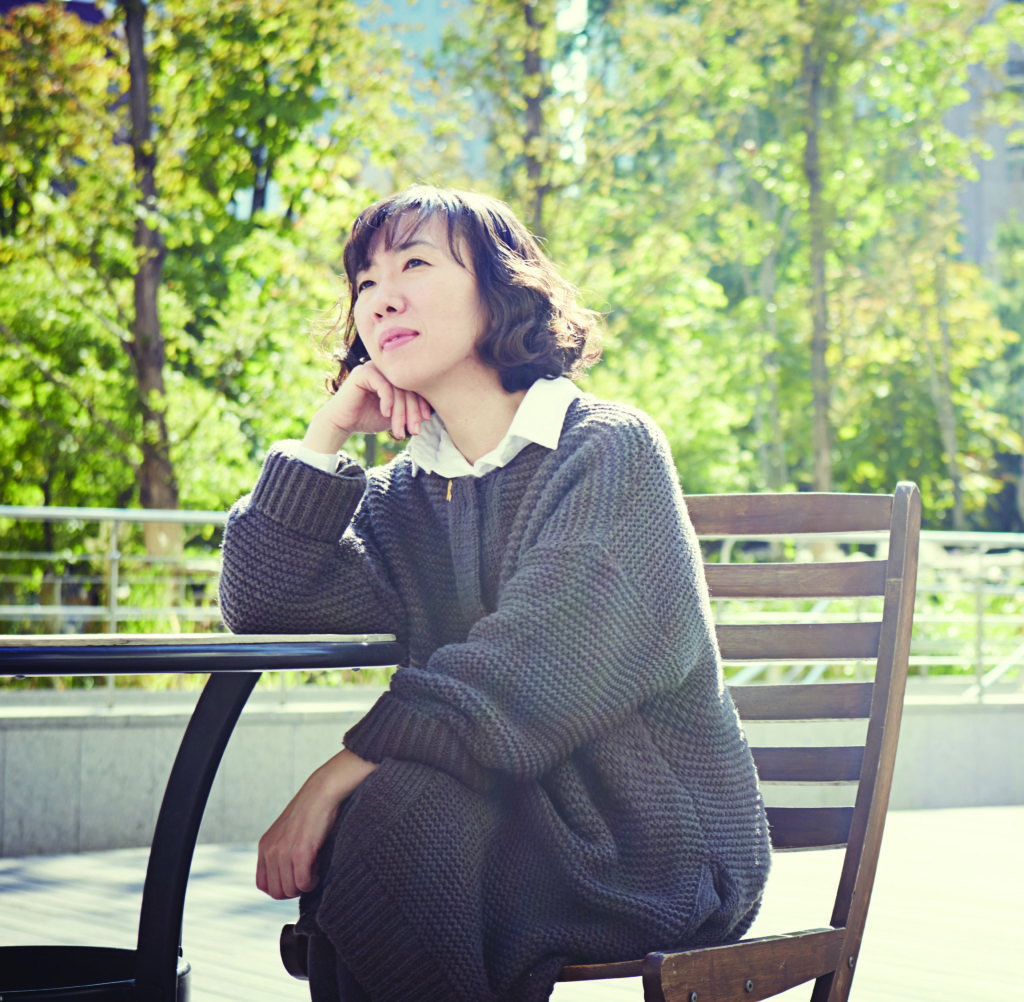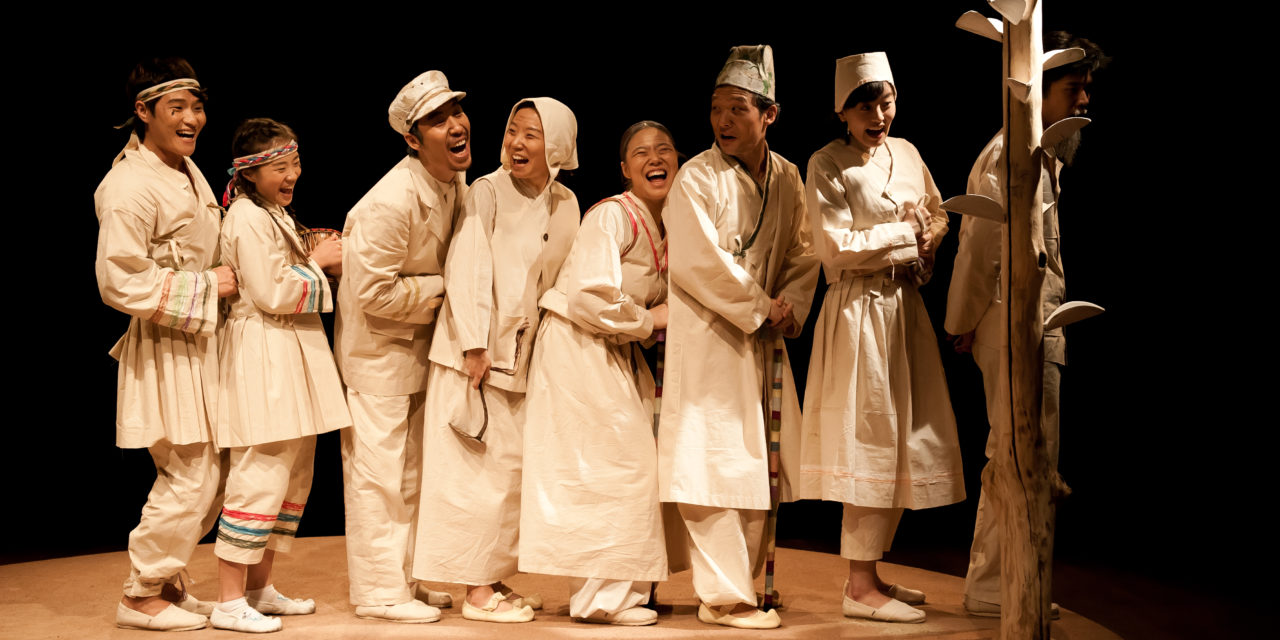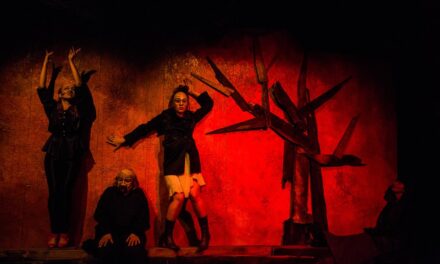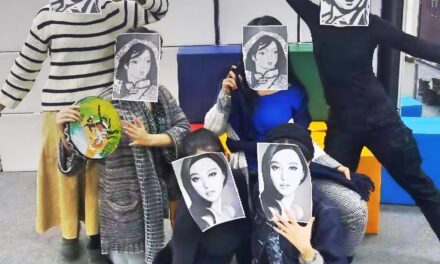Award-winning South Korean playwright and educator Ko Yeon-ok reflects on her teaching practice in a conversation with Kee-Yoon Nahm.
This is Part I of a three-part article. Continue on to Part II here and read Part III here.

Ko Yeon-ok (Courtesy of the playwright)
Nahm: First of all, could you briefly go over your career as a Playwriting teacher?
Ko: I’ve taught in two kinds of settings. One is in university courses and the other is in playwriting workshops with people who have potential as playwrights. To my knowledge, there are two schools in South Korea with independent playwriting departments: Korea National University of Arts (K-Arts) and Seoul Institute of the Arts (SeoulArts). I’ve taught playwriting courses at the School of Drama at K-Arts since 2006. It mostly consists of one-on-one meetings and there are at most three students in a class. Even if three students are enrolled, the course is mostly about me working with each writer intensively on their plays and having discussions. I’ve also taught courses in creative writing departments. Creative writing students have to write in a range of genres each semester—poetry, fiction, children’s stories, screenplays—and I think that’s a bit of a problem. There aren’t that many students who focus on playwriting, maybe one or two in a class. I teach classes that guide students towards writing a one-act play, and there are usually somewhere between 15 and 30 students in a class. Second, I’ve run workshops outside of universities. The first workshop that I ran was in 2004 at the Playwright’s Institute, which the Korean Playwrights Association operates. It was for writers who had not officially debuted [1]. Since then, I’ve continued to run workshops at various organizations, such as with the Seoul Foundation for Arts and Culture, Arts Council Korea, Seoul Metropolitan Theatre Company, and the National Theatre Company of Korea (NTCK). In later workshops, many of the participants were playwrights who were already working professionally. I offer some guidance as these writers develop their work, but these workshops are mostly about young, contemporary playwrights socializing and discussing their work with one another. I insist as much as I can for at least staged readings of the finalized plays so that the playwrights can meet directors and actors and hear how their language performs. I want them to learn the discrepancy between the written text and its theatrical performance.
Nahm: I’m curious about teaching in a creative writing department. Those classes have more students. And you mentioned the importance of playwrights experiencing their text in performance. Isn’t that harder to achieve in a creative writing department? I mean, student plays get produced more at K-Arts or SeoulArts, right?
Ko: No, they don’t. That’s one of the problems of playwriting departments in Korea. New student plays should be produced at the university, but these departments aren’t closely connected with the directing or acting departments. It’s not that students plays are never produced, but out of a class that goes through four to six years of training, only a few students see their work get staged.
Nahm: So there’s no guarantee that a students’ work will be performed since only the best plays are considered for production.
Ko: Right. Some students try to make their own opportunities. But as I understand it, the students in the playwriting department at K-Arts are divided on whether it’s a good idea to push hard to get your play staged. The play has to come together first, and it’s challenging to stage a play before it feels more or less complete. So the students wonder if the production process is essential, and some choose to wait it out.
Nahm: Do you have any other additional considerations about playwriting education in South Korea?
Ko: I don’t know about other schools, but when I offer playwriting courses, both in and out of a university setting, the most important thing is discussion. Playwriting education runs the risk of becoming a kind of apprenticeship system where teachers manufacture a lot of similar-feeling work. So instead, I want students to discuss whether contemporary audiences can empathize with the story they want to tell. But there is a big difference between Korean students and Westerners. We tend not to show ourselves as much to others. These class discussions can be difficult because students have a sense of authorship and are worried that talking about their work can somehow harm it. However, I think it’s very important for students to evaluate the importance of the story they want to tell before they embark on the arduous process of dramatizing it. With creative writing courses, there are too many students in a class so it’s hard to facilitate discussions in the same way. So a lot of teachers end up telling students what is right or wrong. Even in playwriting department courses at K-Arts, getting the students to engage in discussion is hard. They are a bit rigid. As long as they actively engage in discussion, though, I don’t think teaching techniques or skills of playwriting is all that important. The thing about writers is that they don’t have to be close with one another to work in the field. They just need good relationships with directors. So playwrights tend to be scattered. But for playwrights to continue to exist and thrive, it’s necessary for them to socialize with one another so they know how their peers feel about the stories they tell and continue to mature as artists. I feel like that process doesn’t occur naturally in Korea, not yet.
Nahm: They might not be culturally familiar with discussion, but it might also be challenging for playwriting students to talk about their own writing or their peers’ work. Do you think it’s helpful for playwriting students to also engage in discussions with students of other disciplines, such as directors, dramaturgs, and designers?
Ko: Yes, it’s very helpful, especially for young playwrights. But there is one thing to consider. When playwrights meet directors or actors for a staged reading, many feel like they are on trial. It happens naturally. I’ve felt like that myself like I’m naked in front of everybody. Whatever the collaborators say, playwrights end up repeating, “I’m sorry. I’m sorry.” I was like that too. Surely, other artists don’t assume that a play is bad just because the playwright seems so unconfident. They know how hard it is to write a play. At least, that’s what I tell my students. They get it once they start discussing their work with others. It’s great for a writer to be sure of their story, the language and the world of the play. But if that’s not the case, these meetings become a kind of rite of passage. And if the director or actors start suggesting what the play should be like, or directly criticize the play for things and characters that they don’t understand, then the meeting can do more harm than good.
Nahm: Because the playwright will end up trying to incorporate all that criticism?
Ko: It’s a burden on the writer. Other people have their own vocabulary and many of them know how drama is structured. So it makes sense that there are things that don’t agree with their sensibilities at first. Whenever possible, I encourage young playwrights to meet the director and actors only after the staged reading. I tell them to send the script and leave them alone to figure out what the playwright is thinking, analyze the text, and try to express it. I think it’s better for the director and cast to come to the playwright afterward and say, “This is how we interpreted the play. Were we right?” In my case, I don’t feel insecure when meeting actors for a first read-through anymore. I find it easier to have conversations with them, and they’re very helpful. Once younger playwrights become more experienced, I think they can do the same.
Nahm: What do you think are the most important elements or concepts in playwriting?
Ko: To me, it’s contemporary relevance.
Nahm: Right, you said that. And you cultivate that in the classroom by having the students engage in discussion and listen to one another.
Ko: Playwrights can also write for TV or film, and if you have a hit show, it can make you a famous writer overnight. But in that case, these writers risk writing only things that look entertaining, or ingenious or flashy, rather than craft their own world through drama. I try to prevent that kind of thinking when these writers are in school because it’s important to me that plays contain an urgent question. It’s not enough for a playwright to create a dramatic world because they think it will be fun or beautiful. I believe that they choose to represent a certain world because deep down they want to find the answer to a question that they carry with them in their everyday life. If there is no urgent question, then the story is hollow. So I encourage my students to find the urgent question in their work.
[1] Translator’s Note: Traditionally, one becomes a member of the Korean literary community by winning one of the “New Spring Literary Competitions” that the major newspapers hold each year.
This interview is part of the project The Global Playwriting Workbook (Methuen Drama 2019), by Ana Candida Carneiro.
This post was written by the author in their personal capacity.The opinions expressed in this article are the author’s own and do not reflect the view of The Theatre Times, their staff or collaborators.
This post was written by Kee-Yoon Nahm.
The views expressed here belong to the author and do not necessarily reflect our views and opinions.

















